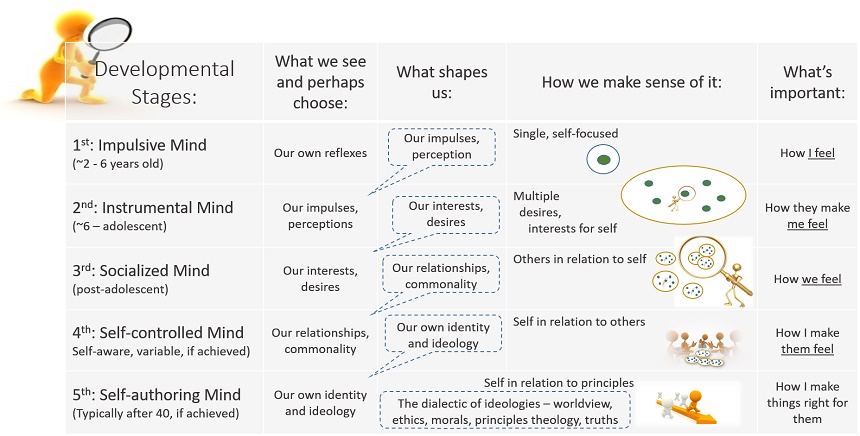At some point they will stall because they're no longer impressive performers. They rise to their level of incompetence and stay there.
Over time, every position in the hierarchy will be filled by someone who lacks what it takes to do the job well.
It's not a joke; it's a common problem that must be solved to stay competitive; reorganize, down-size, spin-off, cross-train, reassign, ... The larger the organization, the larger the problem.
"The Peter Principle" was published in book form in 1968. The author sums it up by saying: "the cream rises until it sours."
The principle plays out most visibly with the transition into and through middle management, and it may leak upward from there.
In more recent scholarly work, we have the Dunning-Kruger Effect where unskilled individuals suffer from illusory superiority. They mistakenly rate their ability much higher than is accurate. This bias is attributed to their inadequate ability to recognize their own ineptitude. By comparison, genuinely capable individuals tend to underestimate their relative competence, often thinking that tasks which are easy for them are also easy for others. Again, middle management is the most visible venue.
The planning fallacy is a great example.
 |
Ignorance ignores its own ignorance.
"Poor performers do not learn from feedback
suggesting a need to improve."
~Joyce Ehrlinger
Ehrlinger, Joyce; Johnson, Kerri; Banner, Matthew; Dunning, David; Kruger, Justin (2008). "Why the unskilled are unaware: Further explorations of (absent) self-insight among the incompetent". Organizational Behavior and Human Decision Processes |
The principle plays out most visibly with the transition into and through middle management, and it may leak upward from there.
In more recent scholarly work, we have the Dunning-Kruger Effect where unskilled individuals suffer from illusory superiority. They mistakenly rate their ability much higher than is accurate. This bias is attributed to their inadequate ability to recognize their own ineptitude. By comparison, genuinely capable individuals tend to underestimate their relative competence, often thinking that tasks which are easy for them are also easy for others. Again, middle management is the most visible venue.
The planning fallacy is a great example.
It's scary if you think about it. The only hope we have of knowing we're helpful is if we think we're probably not all that great. Reasonable humility, perhaps required for some measure of right thinking.
 |
| Mount Stupid! Ok, one more time down the mountain. |
It's a lesson we must learn in each area of life. I forget who in my early career days was the first to clobber me so effectively with that particular truth. They required of me that I aggressively pursue all the stuff I didn't yet know. It wouldn't be so bad, except fifty years later, there's still so many stinking things left to learn.
This particular article was occasioned by the discovery of yet another area in my own thinking that needs such an adjustment. Like I didn't have enough to do.




















